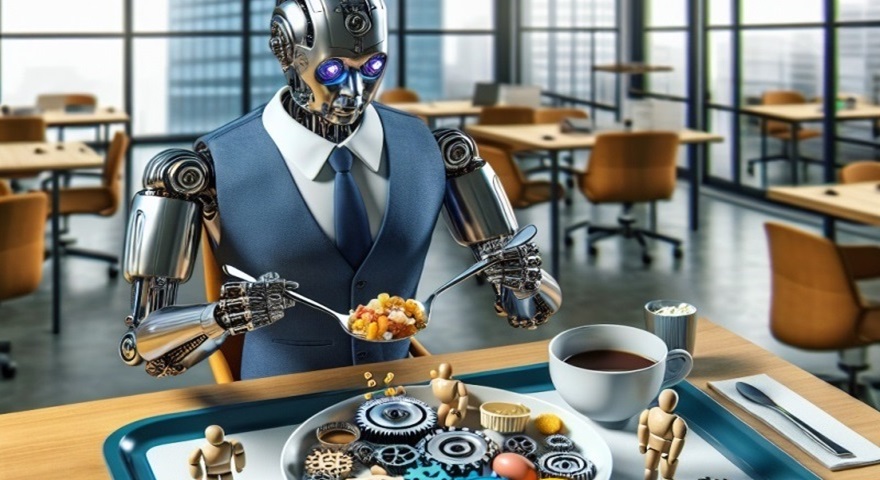There is no organisation without an organisational culture. How is the rise of artificial intelligence turning this around? What can a company do to ensure that one doesn’t eat the other, that the benefits of AI are harnessed by employees and the threats are managed well?
The article by Dr. Ildikó Magura, Managing Partner of Flow Consulting was published on HR Portal (in Hungarian):
The importance of organisational culture cannot be overstated: there is no organisation without an organisational culture! The values, habits and behaviours of a company or institution are fundamental to its operation and success. Over the past decades, countless examples have shown that even the best-formulated strategy is worthless without a healthy, supportive organisational culture, or “culture eats strategy for breakfast.” But what about artificial intelligence? Does AI eat culture for “lunch”? Or, on the contrary, can AI shape organisational culture?
These are the questions we are now beginning to explore, to see if AI and culture can be at peace and in friendship, how AI affects organisational culture, and how the two can be brought into close cooperation.
Our belief as organisational developers is that they are/will be at peace and in friendship with each other, because what AI cannot do, human beings can do, and what humans cannot do (or not fast enough), AI will help.
The intersection of AI and organisational culture
The rise of artificial intelligence in the business world is inevitable. Its application is spreading rapidly in many areas – from data analytics, to customer service, to manufacturing process automation. However, the adoption of AI raises not only technological but also human issues. How are employees embracing the new technology? What impact will AI have on human relationships and communication in the workplace? How can AI be integrated so that it brings not only technological benefits, but also cultural development?
Indeed, AI also offers the opportunity to develop the internal values and behavioural norms of the organisation. In addition to supporting data-driven decision-making, it can also increase the efficiency of work processes and improve communication between employees. For example, AI-based analytics can help measure employee satisfaction, identify areas for improvement and design personalised improvement programmes.
AI can also help support organisational learning and development. Through intelligent training systems and virtual assistants, employees can continuously develop their skills and knowledge at their own pace and according to their preferences.
Tackling staff anxiety
However, the introduction of AI can also create anxiety and fear in employees. They may fear that AI will replace them or that they will not be able to keep up with technological advances. How to address these anxieties and fears – communicating the goals and benefits of AI implementation in an empathetic and supportive way – is therefore an important consideration.
It is important to make employees feel that AI is not against them, but for them. Monotonous, repetitive tasks performed by AI free up time for creative, strategic thinking tasks, which increases employee satisfaction and organizational engagement.
Inspired by success stories
The right way forward is to look for, read and study concrete case studies and practical examples of how AI and organisational culture can work together in reality. We can draw inspiration from examples of organisations with successful AI implementations, and learn how AI can be applied in a way that leads to real cultural change.
The relationship between AI and organisational culture is much deeper and more complex than you might first think. Their introduction to each other invites all professionals and stakeholders on an exciting and thought-provoking journey to explore together how AI can transform workplace culture and how technological advances can become a tool for developing organisational values and norms.
This will be discussed in more detail at the Training Roundtable Conference on 2 October:
Dr. Ildikó Magura will give her presentation at 1:30 p.m.






 Fábián László
Fábián László













